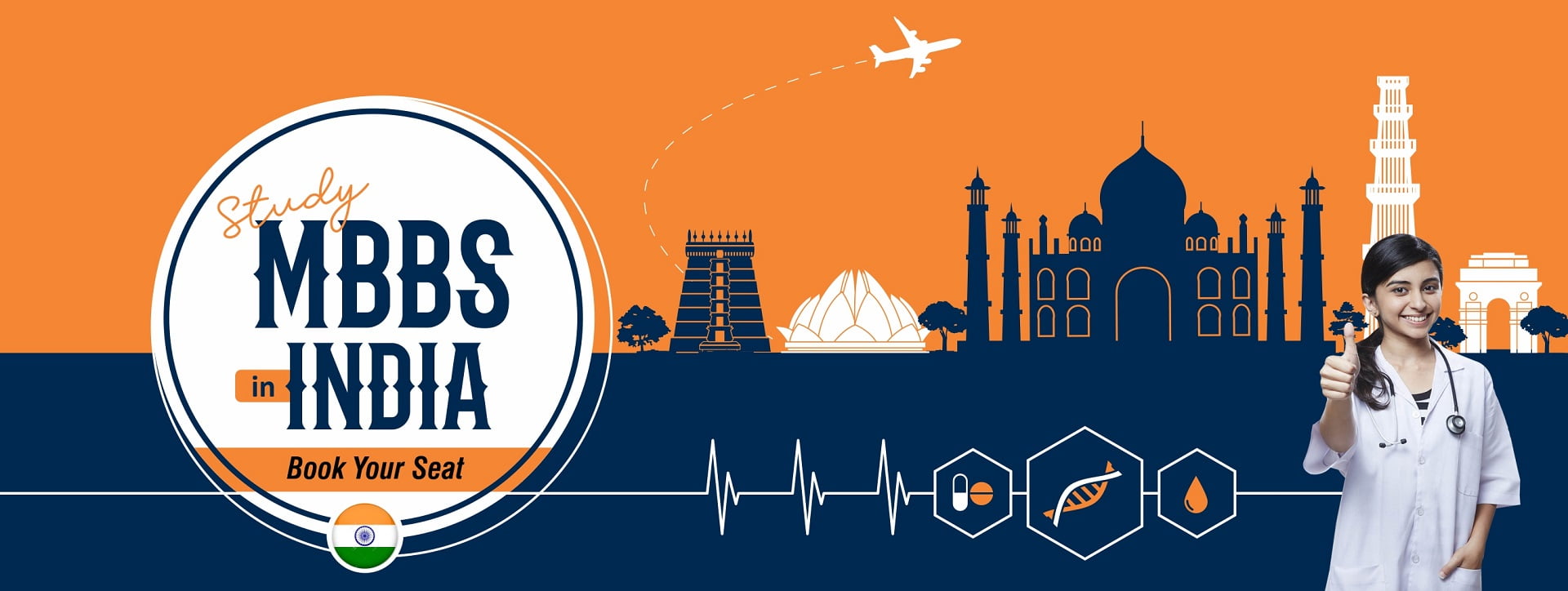
Top MBBS Colleges in India
Overview
MBBS Course Details
Full Form: Bachelor of Medicine and Bachelor of Surgery
Duration: 5.5 years (4.5 years academic 1-year mandatory internship)
Course Level: Undergraduate
Course Type: Full-Time
Overview:
The MBBS course is the foundational degree in medicine, combining in-depth theoretical knowledge and hands-on clinical training. Students study subjects such as Anatomy, Physiology, Biochemistry, Pharmacology, Pathology, and Microbiology, along with practical exposure through clinical postings in hospitals.
Upon completing the MBBS program, graduates can pursue careers in general practice, advanced specializations, or research, making it the ultimate gateway to a successful medical career.
Why Study MBBS?
- Make a Difference: Doctors play a vital role in improving public health by diagnosing, treating, and preventing illnesses.
- High Demand: The healthcare sector offers unmatched job stability, with a growing demand for qualified medical professionals.
- Prestigious Career: Medical practitioners are highly respected in society for their expertise and contribution to saving lives.
- Diverse Specializations: MBBS graduates can specialize in fields like Surgery, Pediatrics, Cardiology, Radiology, Dermatology, and more.
- Challenging and Fulfilling: Medicine requires problem-solving, critical thinking, and continuous learning, making it intellectually stimulating.
- Financially Rewarding: The potential for long-term financial stability and competitive salaries is a major incentive.
Eligibility Criteria for MBBS
To pursue MBBS, candidates must meet the following requirements:
- Educational Qualification: Pass Class 12 with Physics, Chemistry, Biology/Biotechnology (including practicals) and English.
- Minimum Age: 17 years at the time of admission.
- Entrance Exam: Qualify in NEET UG (National Eligibility cum Entrance Test).
- Minimum Marks in Class 12:
- General Category: 50%
- OBC/SC/ST Category: 40%
- PwD Candidates: 45%
Recent Update: The National Medical Commission has allowed students with Mathematics as an additional subject to participate in NEET.
MBBS PG Specializations
After completing MBBS, graduates can opt for various specializations. Some popular fields include:
Clinical Specializations:
- General Medicine: Focus on diagnosis and treatment of a wide range of diseases.
- General Surgery: Specialization in surgical procedures for various medical conditions.
- Pediatrics: Medical care for infants, children, and adolescents.
- Obstetrics and Gynecology: Focus on women's reproductive health and childbirth.
- Orthopedics: Treatment of musculoskeletal disorders.
- Ophthalmology: Diagnosis and treatment of eye diseases.
- ENT (Ear, Nose, and Throat): Specialization in conditions affecting these areas.
- Dermatology: Focus on skin, hair, and nail disorders.
- Psychiatry: Mental health and psychological well-being.
- Radiology: Use of imaging techniques like X-rays, MRIs, and CT scans for diagnosis.
Non-Clinical Specializations:
- Anesthesiology: Administering anesthesia and managing pain during surgeries.
- Pathology: Study of disease causes and effects through laboratory examination.
- Microbiology: Focus on microorganisms and their role in diseases.
- Pharmacology: Study of drug action and usage.
- Forensic Medicine: Application of medical knowledge in legal investigations.
MBBS Admission Process
The MBBS admission process is structured as follows:
- NEET UG Registration: Register online at the official NEET website, upload documents, and pay the application fee.
- Appear for NEET UG Exam: This national-level test determines eligibility for MBBS admission in India.
- Result Declaration: Check results online to confirm qualification.
- Counseling:
- Register with the Medical Counseling Committee (MCC) or respective state authorities.
- Fill in college preferences during counseling.
- Seat Allotment: Based on NEET rank, preferences, and reservation criteria.
- Document Verification: Submit original documents for verification at the allotted college.
- Final Admission: Complete fee payment and formalities to secure your seat.
Top MBBS Colleges in India
Government Colleges:
- AIIMS Delhi: Known for world-class education and facilities.
- JIPMER Puducherry: A prestigious medical institute offering extensive research opportunities.
- KGMU Lucknow: Renowned for clinical training and academic excellence.
Private Colleges:
- Christian Medical College (CMC), Vellore
- Kasturba Medical College (KMC), Manipal
- SRM Medical College, Hospital & Research Centre, Chennai
- Bangalore Medical College and Research Institute (BMCRI), Bangalore
- Saveetha Medical College, Chennai
MBBS Course Fees
- Government Colleges: ₹10,000 - ₹50,000 per year
- Private Colleges: ₹3 Lakh - ₹25 Lakh per year
Career Opportunities After MBBS
An MBBS degree opens doors to a variety of medical professions:
Job Roles:
- General Practitioner
- Medical Officer
- Surgeon
- Pediatrician
- Medical Assistant (Surgery)
Top Recruiters:
- Medanta Hospitals
- Apollo Hospitals
- Fortis Healthcare
- Sun Pharmaceutical Industries
Average Salary Range: ₹2.5 LPA - ₹15 LPA
Key Highlights About MBBS in India
- Total MBBS Seats in India: 1,09,170 across 706 medical colleges.
- NEET 2024 Stats:
- Highest qualifying candidates from Uttar Pradesh, Maharashtra, and Rajasthan.
- Over 56% of test-takers qualify for NEET annually.
- Student Diversity: Includes Indian Nationals, NRIs, OCI, and foreign candidates.
MBBS Seats
The number of MBBS seats in India has significantly increased, with both government and private medical colleges contributing to the total.
Candidates can check the table below to see an overview of MBBS seats in India:
State/UT Number of Government MBBS Seats Number of Private MBBS Seats Total Number of MBBS Seats Uttar Pradesh 4,303 4,750 9,053 Delhi 1,247 250 1,497 Andaman and Nicobar Islands 100 0 100 Andhra Pradesh 2,485 2,850 5,335 Arunachal Pradesh 50 0 50 Assam 1,150 0 1,150 Bihar 1,515 900 2,415 Chandigarh 150 0 150 Chhattisgarh 965 600 1,565 Dadra and Nagar Haveli 150 0 150 Goa 180 0 180 Gujarat 3,700 2,000 5,700 Haryana 710 950 1,660 Himachal Pradesh 770 150 920 Jammu and Kashmir 1,047 100 1,147 Jharkhand 680 250 930 Karnataka 3,150 6,995 10,145 Kerala 1,555 2,700 4,255 Madhya Pradesh 2,180 1,900 4,080 Maharashtra 4,825 5,070 9,895 Manipur 225 150 375 Meghalaya 50 0 50 Mizoram 100 0 100 Odisha 1,375 750 2,125 Puducherry 380 1,250 1,630 Punjab 800 950 1,750 Rajasthan 3,055 950 4,005 Sikkim 0 150 150 Tamil Nadu 5,725 5,500 11,255 Telangana 1,840 3,200 5,040 Tripura 125 100 225 Uttarakhand 700 450 1,150 West Bengal 3,225 1,000 4,225 Total 54,278 50,315 1,04,333